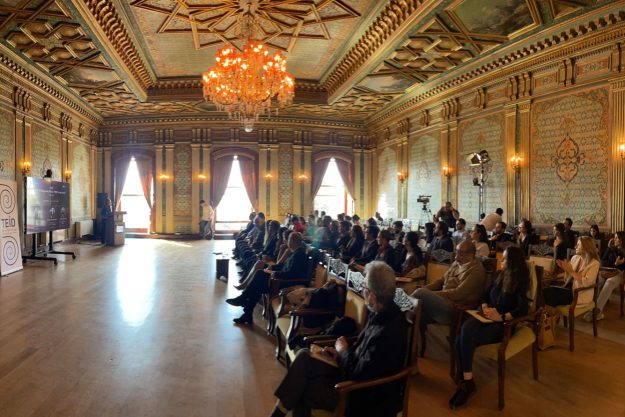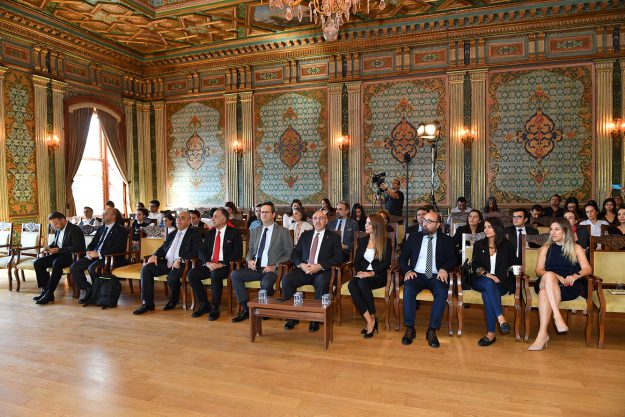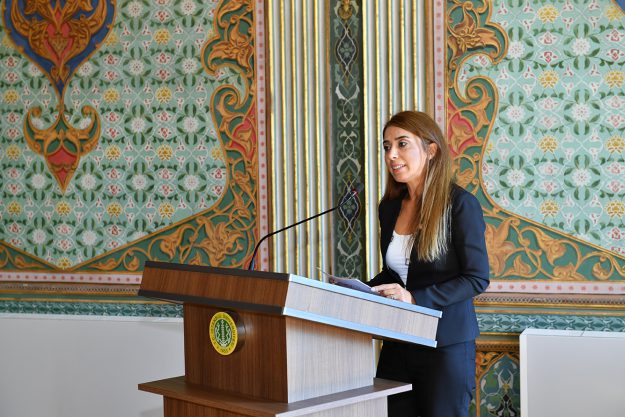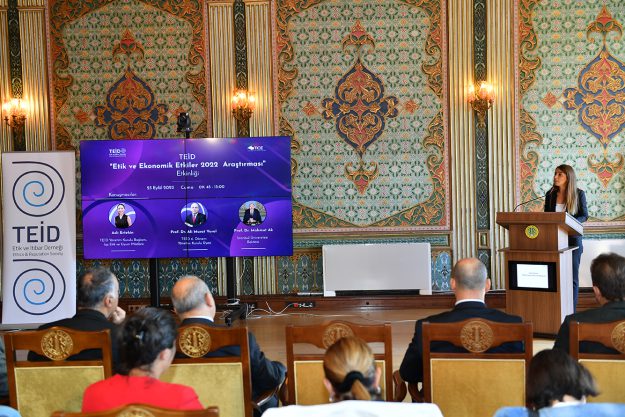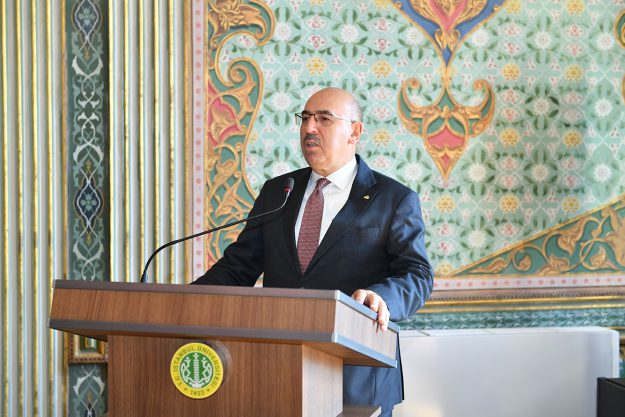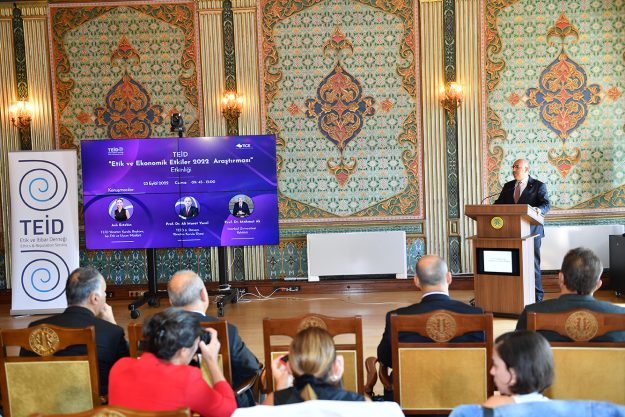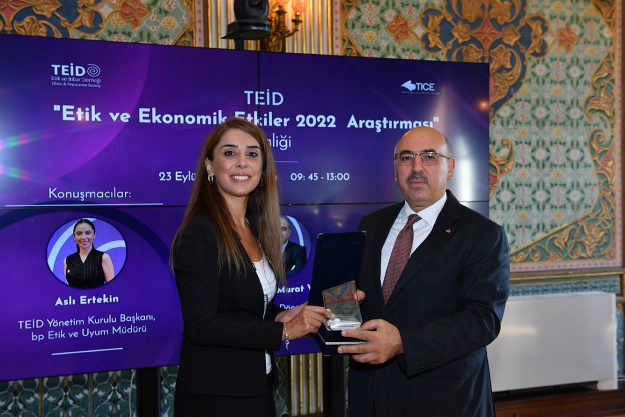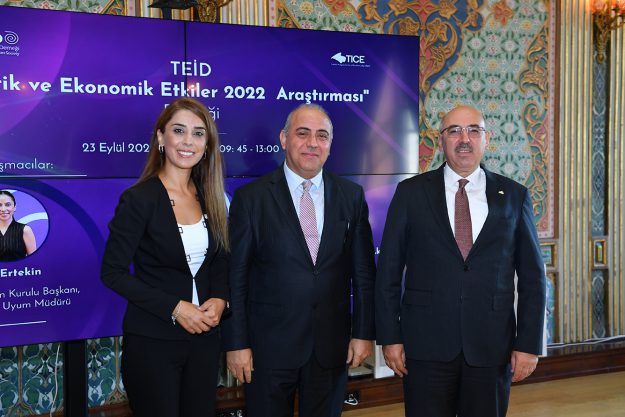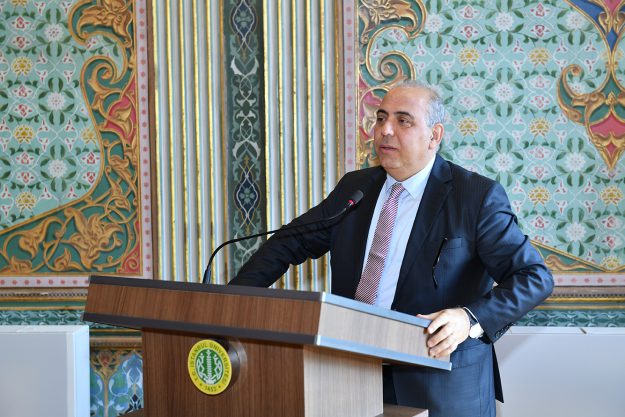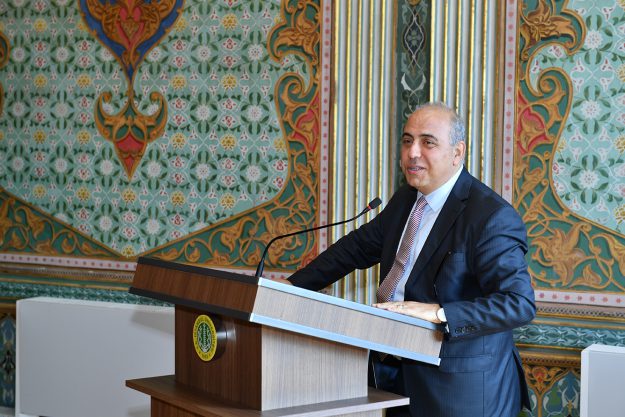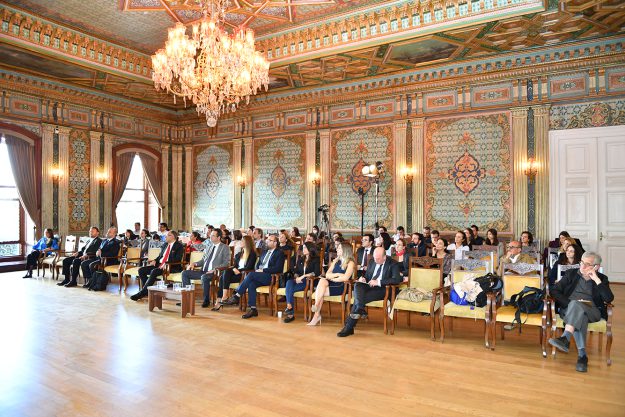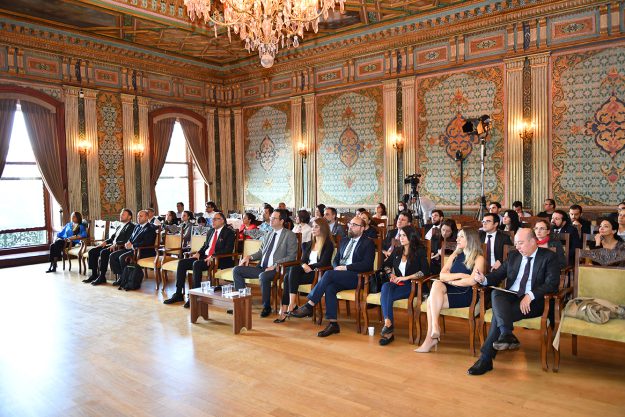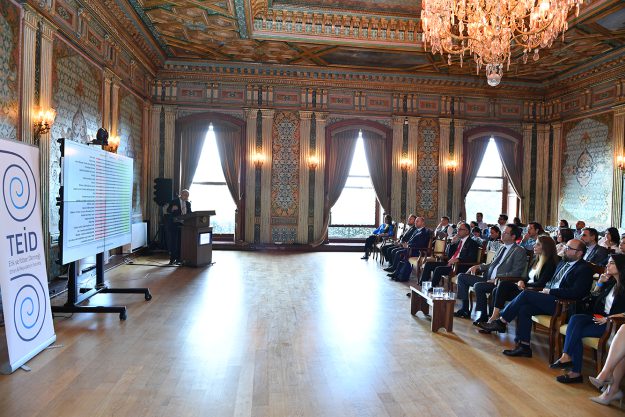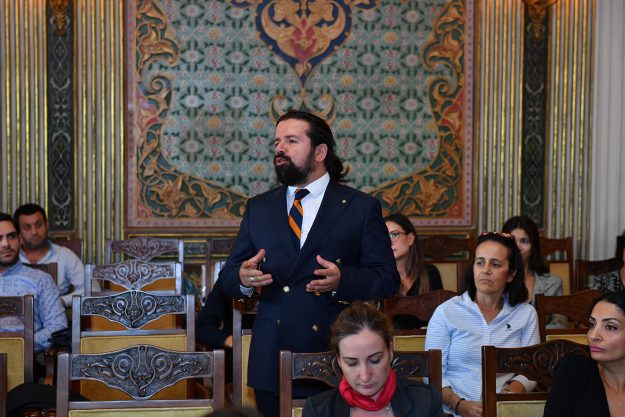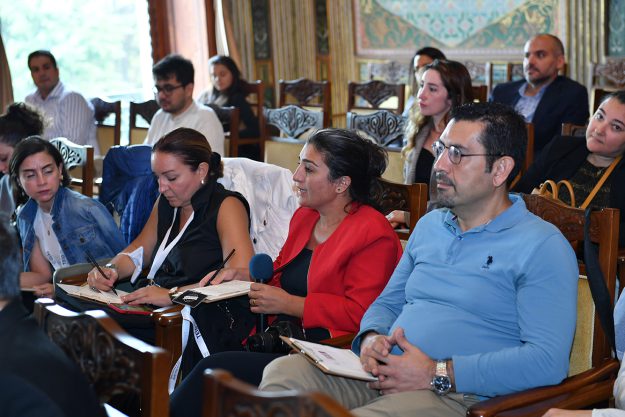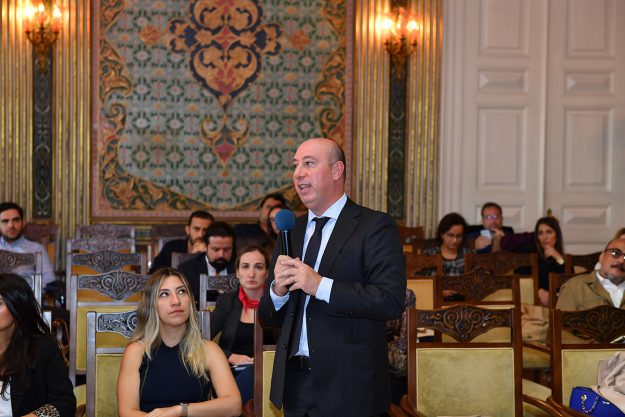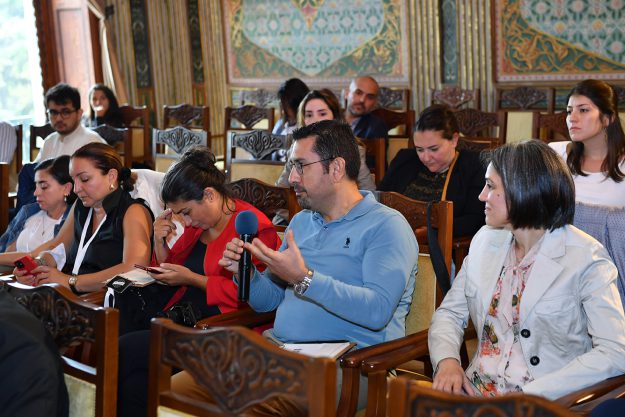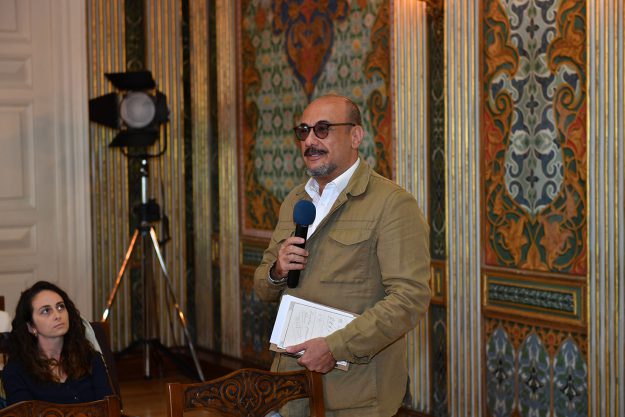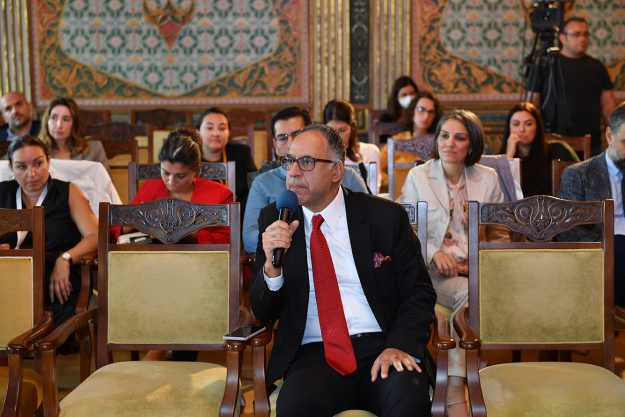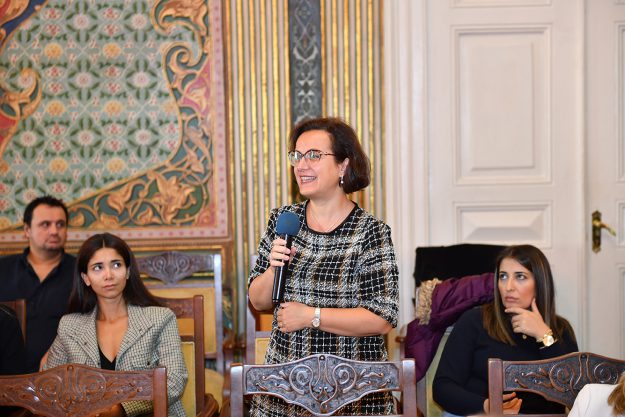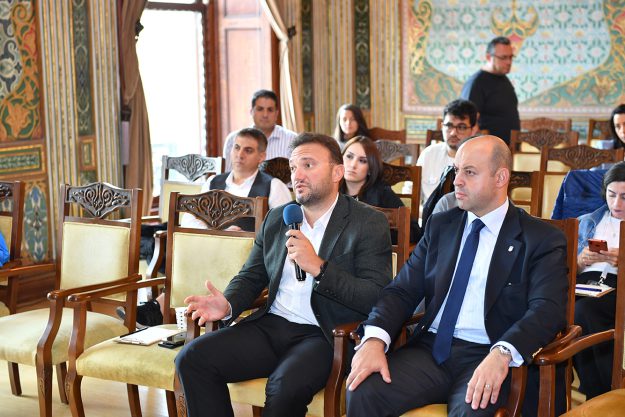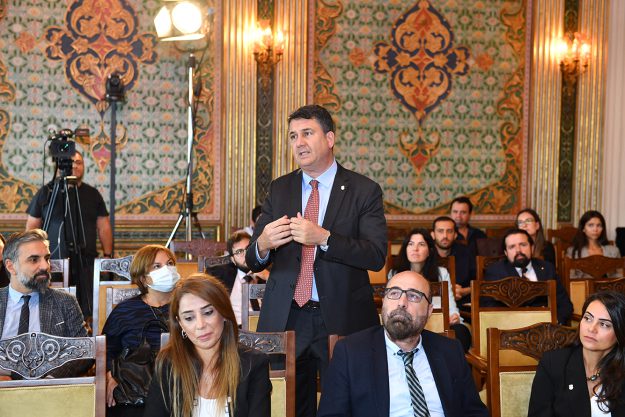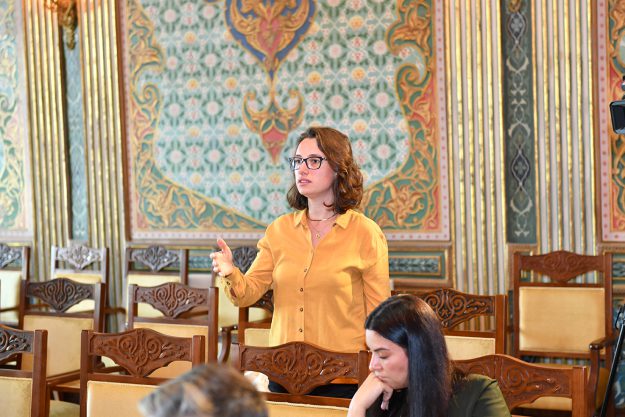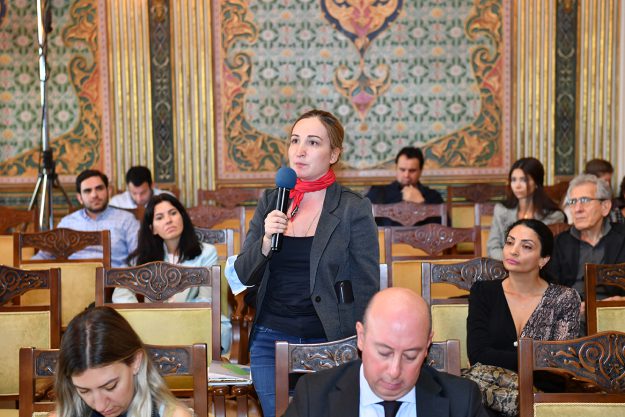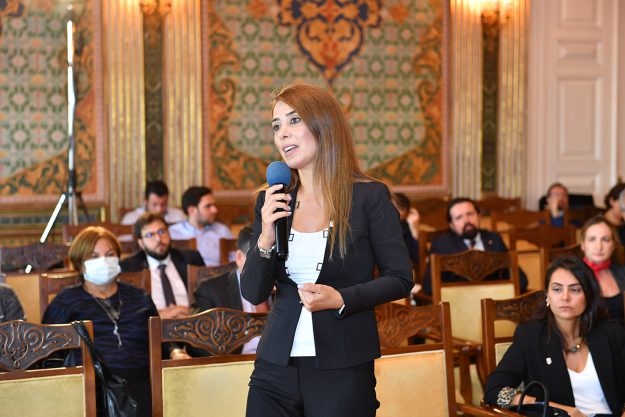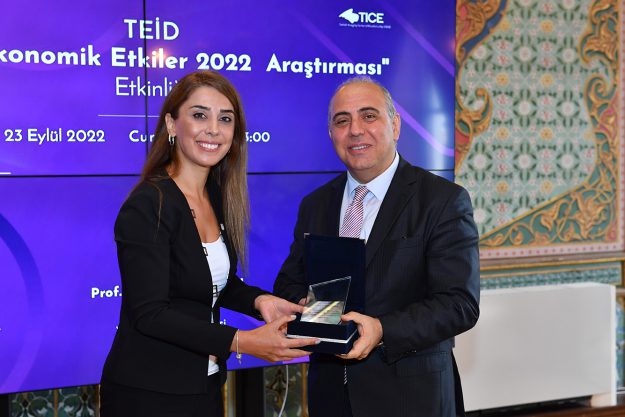The Ethical and Economic Impact 2022 Survey results were carried out by the Ethics and Reputation Society (TEID) and I.U. Technology Transfer Center as the R&D project numbered TTM-KAP 2021-35 has been announced.
To analyze the Ethical and Economic Impacts Measurement Analysis and Evaluations literature studies, approximately 13,000 studies published between 1980 and 2022 were examined using text mining and keyword co-occurrence networks, and the results obtained from the query were studied.
The project, whose Project Coordinator is Prof Dr. Ali Murat Vural and Prof Dr. Haluk Zülfikars, can guide today’s business world in many subjects with its data based on measuring the perception and importance of ethical understanding in the eyes of the institution and the individual, as well as examining the impact of business on ethical understanding and the impact of ethical understanding on business.
TEID Chairperson of the Board Aslı Ertekin, Ethics and Compliance Manager of bp Turkey, and Prof. Dr. Mahmut Ak, Rector of Istanbul University, delivered the opening remarks at the meeting, where the results of the TEID Ethical and Economic Impact Survey were announced.
According to the TEİD Ethical and Economic Impact 2022 Survey Measurement Analysis and Evaluations;
A 1% change in democracy has an average impact of 1.19% on the economy
According to the study’s results, when analyzing a country’s economic structure, it is important to calculate not only the macro variables but also the demographic structure, the level of education, the involvement of individuals in the decision-making process, the institutional structure, and consumer trends. While the result that the democracy variable is one of the most influential variables in the Turkish economy is consistent with the political economy literature, a 1% change in democracy has an average impact of 1.19% on the economy. A 1% increase in democracy can increase per capita income to an average of $10,232.
Turkish population over 18 cannot define the concept of ethics
More than half of the Turkish population over 18 cannot define the concept of ethics. The ratio based on the analysis shows that the concept of ethics does not resonate in the minds of about 4,000,000 people over 18 years of age, even if they are reminded or helped. 17.7 million people are without help, and another 13.6 million people are added when they are reminded or helped, and in total, only 31.3 million people can define ethics or talk about a secondary concept. However, 93.5% of the target group can correctly define the concept of morality, albeit with different expressions.
Exposure to unethical behavior is highest among those with a college education
38.5% of individuals indicated that they did not observe any unethical behavior, 29.7% indicated that they observed some unethical behavior, and 11.9% indicated that some unethical behavior happened to them. It was found that participants with college or college degrees were the most likely to encounter unethical behavior. 38.4% of participants with a college or college degree indicated that they had experienced unethical behavior. 51.7% of participants with secondary education indicated that they have never experienced or witnessed unethical behavior.
Men are more likely to witness unethical behavior personally
While the rate of witnessing unethical behavior personally is higher for men than for women, the rate of witnessing or hearing about unethical behavior in their close circle is quite high compared to other information sources. The proportion of those who stated that close circles are the source of witnessing unethical behavior ranks first at 63.9%.
The concept of not being unfair is quite low in the 30-34 and 35-44 range
When mentioning the term ethics, the term ethics stands out significantly in the age group of 65 and older compared to other terms. The 45-54 age group is considered the dominant concept of morality. Although integrity and justice seem to be other important secondary and tertiary concepts in all age groups, the concept of not dishonoring others remains very low in the 30-34 and 35-44 age groups.
The 18-29 age group has never encountered the concept of justice
Integrity, being moral, and fairness constitute the closest concepts that women attribute to the concept of ethics. While this finding did not differ from the general, all statements except take a bribe/bribe and not valuing money were moderately agreed between 40% and 50%. In particular, those aged 18-29 say they have never encountered the concept of justice, compared to those aged 55+.
“Staying away from lying” seems almost impossible for those under 45
“Staying away from lying” seems almost impossible for those under 45. The 34- to 44-year-olds are more likely than the other age groups to say they have never encountered the issue of “taking care of the interests of the workplace, the company’s more than other age groups.” From the survey results, it appears that participants do not hesitate to make sacrifices for the interests of their families, and a spouse’s wealth comes before “parents and siblings.”
The rate of those who believe in justice is around 40 percent
While more than half of the participants state that they are “honest and adhere to traditions,” they want to intervene when they witness violence. Although more than 50% of participants say they will demand their rights, belief in justice is at 40%.
The opinion that there is discrimination in appointments is more than 50 percent
While more than 50% believe that discrimination occurs in appointments, participants believe that “bribery” does not give credibility to individuals or institutions. About one-fifth of participants believe that we should open our doors to refugees. On the other hand, the opinion that “those with good connections should move up, not those who deserve it” is prevalent at 52%.
The main reason for ethical problems is that money is the only goal
According to the research results, the main reason for ethical problems is that money is the only goal. Other causes include inadequate education, widespread lying, the inadequate rule of law, and the decay of family institutions. While individuals aged 45-54 and 55-64 believe that money as the sole goal is the most influential factor in ethical problems, individuals of young age believe that the most important factor in causing ethical problems is the perception that the rule of law is not sufficiently considered.
Honesty is one of the required features
35.8% of the participants indicate that honesty is one of the three basic qualities sought in individuals. This is followed by the qualities of fairness, integrity, and respect for others. While the concept of honesty is one of the three basic traits that participants generally look for in the people they meet, the traits of “integrity” and “respect for the other person” are more prominent among those over 65. Priorities also vary by education level.
Transparency is the most important of the characteristics expected from institutions
It can be seen that the answer to the question about transparency is one of the characteristics expected from institutions at all levels of education. 41.1% of participants with a college or college degree consider honesty one of the basic qualities expected of institutions. While nearly all participants indicated that they want transparency in the institutions they deal with, individuals aged 35 to 44 were most likely to indicate that they want honesty.


